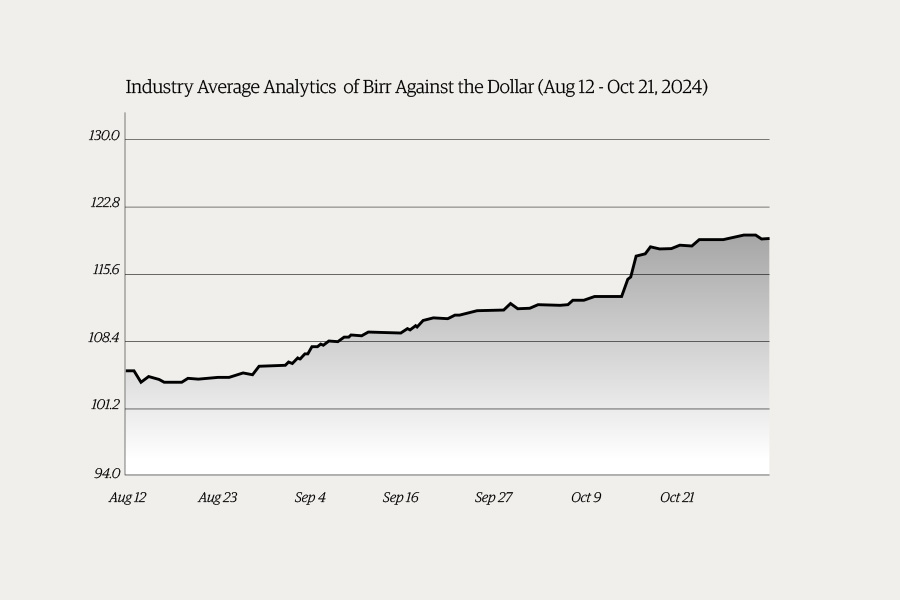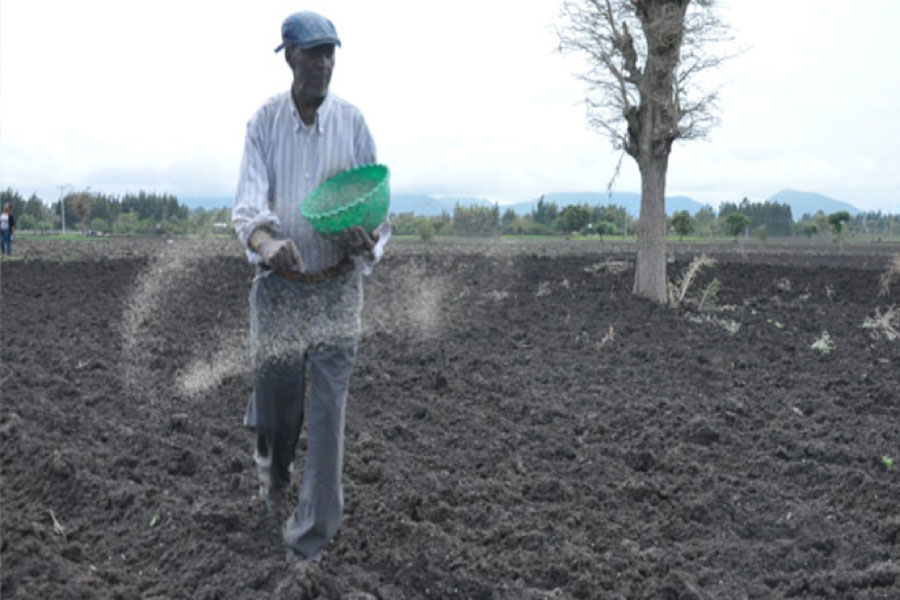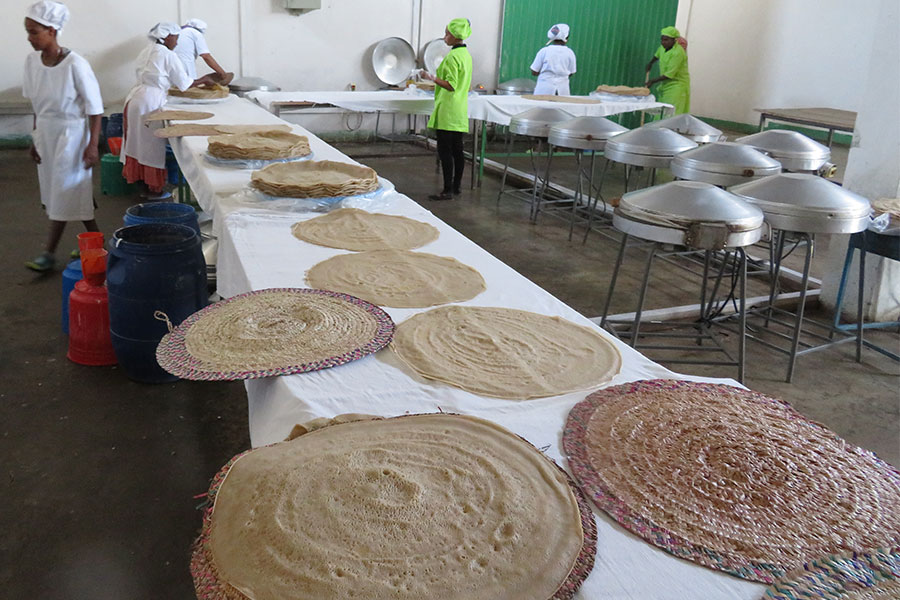
Fortune News | Jan 29,2022
As the fasting season came to an end over the past week, followers of the Christian faith prepared to celebrate Easter and surreptitiously approached markets. Popular destinations such as Shola Gebeya greeted them with an assortment of mainly food stuffs and cattle suppliers. The limited hustle and bustle at the markets for what is usually a buoyant holiday can, this time around, only be described as so-so.
Partly, this was as a result of prices. Some products such as butter, a critical ingredient in non-fasting traditional foods, have doubled compared to what they sold for during Genna, over three months ago. Buyers can now find it for 600 Br - although consumer associations are selling it for nearly half the price - a surge experts and market insiders blame on the shortage of milk and even widespread political violence that may have disrupted supply chains.
No less explosive has been the cattle market, at least that of oxen in Shola Gebeya, where one ox was selling for over 30,000 Br, nearly a third more than what it fetched during Genna. In a market in one of the townships, a farmer offered a fattened bull with a price tag 150,000 Br.
The culprit for the upswing is the price increase of fodder fed to the cattle and the 200,000 Br daily withdrawal limit for businesses imposed by the central bank. The latter has meant that sellers in Addis Abeba’s markets could only pay for a limited number of cattle in cash, significantly disrupting supply chains. These price increases are in line with the inflationary pressure that has stubbornly remained around 20pc for well over the past year. Just last month, it was registered at 22.2pc for food items and 17.1pc for non-food ones. Holidays usually mean higher levels of consumption, and are thus likely to worsen the price upsurge for consumers. For this holiday though, where festivities are centred around food, they can at least console themselves with some items that have remained relatively stable.
Sheep continue to sell within the range of 2,000 Br to 8,000 Br while chickens can be found for under 600 Br, as it was during the Christmas season. Better still, edible oil is not showing a price surge owing to local supply improvements, hanging at a little over 47 Br for a litre, providing a glimmer of certainty in times of such unpredictability.
You can read the full story here
PUBLISHED ON
Apr 30,2021 [ VOL
22 , NO
1096]

Fortune News | Jan 29,2022

Fortune News | May 21,2022

Radar | Mar 25,2023

Money Market Watch | Nov 03,2024


Fortune News | Dec 05,2018

Fortune News | Dec 11,2021

Fortune News | Jun 15,2025

Fortune News | Oct 06,2024

Featured | Mar 07,2020

Dec 22 , 2024 . By TIZITA SHEWAFERAW
Charged with transforming colossal state-owned enterprises into modern and competitiv...

Aug 18 , 2024 . By AKSAH ITALO
Although predictable Yonas Zerihun's job in the ride-hailing service is not immune to...

Jul 28 , 2024 . By TIZITA SHEWAFERAW
Unhabitual, perhaps too many, Samuel Gebreyohannes, 38, used to occasionally enjoy a couple of beers at breakfast. However, he recently swit...

Jul 13 , 2024 . By AKSAH ITALO
Investors who rely on tractors, trucks, and field vehicles for commuting, transporting commodities, and f...

Oct 18 , 2025
The political establishment, notably the ruling party and its top brass, has become p...

Oct 11 , 2025
Ladislas Farago, a roving Associated Press (AP) correspondent, arrived in Ethiopia in...

Oct 4 , 2025
Eyob Tekalegn (PhD) had been in the Governor's chair for only weeks when, on Septembe...

Sep 27 , 2025
Four years into an experiment with “shock therapy” in education, the national moo...